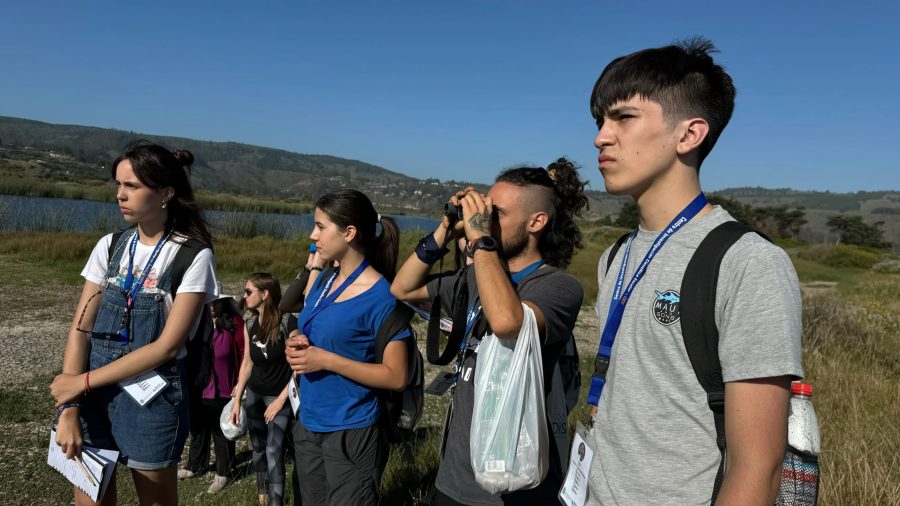CICE Applied Ecology Course successfully closed its seventh version
March 26th, 2024
The course was developed during January 2024 and had a closing ceremony at the UC Faculty of Education. Over 10 years of work, it has impacted more than 120 students throughout the country.

28 high school students, from 26 different schools and 3 regions of the country, participated between January 2 and 12 in the seventh version of the Applied Ecology course, organized by the School Scientific Research Center (CICE) with the support of the Center for Applied Ecology and Sustainability (CAPES) UC and UC Faculty of Education.
The course was held in the facilities of the UC Faculty of Education, where over two weeks the students delved into basic concepts of ecology, along with the analysis of the major threats to conservation, such as the loss of habitat, overexploitation of resources, invasive exotic species, pollution, among others. In addition to the theoretical classes, the students had scientific skills workshops, with the aim of developing capabilities through their own school scientific research projects.
During this time, the students had various visits from experts who were able to enrich and deepen their knowledge about applied ecology, among them Tyndall Volosky Díaz, Engineer in Molecular Biotechnology U CHILE and CICE Researcher, who delved into the study of Fungi and Lichens. Also attending were Valentina Valenzuela and Sebastián Ramírez, UC Biologists, who spoke about the impacts of the European Rabbit in Chile; Dr. Francisca Córdova who spoke about OneHealth and the health of ecosystems; and Ignacio Orellana from Uno.Cinco to talk about environmental activism in Chile and the world, among others.

One of the most important activities during the course consisted of field trips. The first occurred on Camino a Farellones, where the students were able to make a comparison of biodiversity indices along an altitudinal gradient. The second was in the Valparaíso Region. There, the ECIM Marine Research Center was first visited, where the staff of the Millennium Nucleus for the Ecology and Conservation of Temperate Mesophotic Reef Ecosystems (Nucleus Nutme) prepared various activities in which theoretical knowledge was integrated with practical knowledge. Then the day ended in the Tunquén Wetland, where the work teams had the task of making a registry of the richness of birdlife present.
The closing of the course took place in the Gabriela Mistral auditorium of the UC Faculty of Education, where a ceremony was held with the 28 students, who were selected from a total of 63 applications, closing an experience that over 10 years of work has impacted more than 120 students throughout the country.

